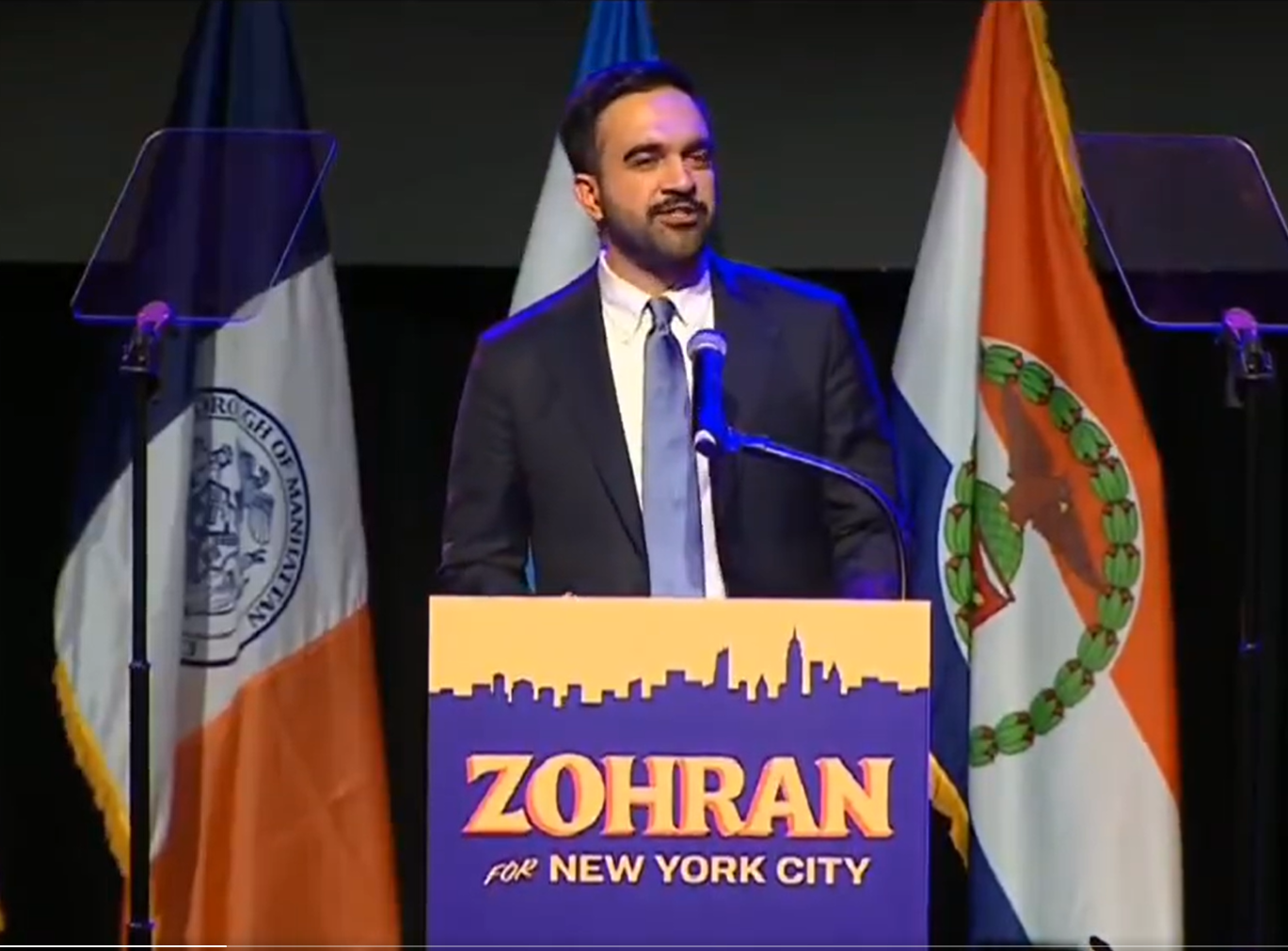Mamdani mayor of New York, a signal for India too?
In his victory speech, the young Muslim politician quoted Nehru from his independence speech, emphasising his ties to his parents' country of origin with Bollywood music in the background. The new mayor embodies an image of Islam that breaks with the stereotypes spread by Hindu nationalists. In India, "The Wire" wonders if his social agenda can offer an alternative model to Modi's economic formula.
New York (AsiaNews/Agencies) – “A moment comes but rarely in history when we step out from the old to the new.”
To mark his historic victory, Zohran Mamdani – the 34-year-old outsider who, after an election campaign overwhelming focused on social issues, became the first Muslim mayor of New York – chose to send a message to India, the land of his roots.
The son of Indian anthropologist Mahmood Mamdani, a professor at Columbia University specialising in postcolonial studies in Africa, having lived in Uganda and Tanzania – and Mira Nair, the director of Salaam Bombay, New York’s mayor-elect chose to quote the midnight speech, “Tryst with Destiny”, with which Prime Minister Jawaharlal Nehru, on 14 August 1947, ushered in India's independence at the end of British colonial rule.
“When an age ends and the soul of a nation finds utterance. Tonight we step out from the old to the new,” Mamdani said.
What probably roused people in India and throughout the Indian diaspora who were watching him were the notes of "Dhoom Machale" – the soundtrack to the 2004 film that has become a sort of Bollywood anthem, played at the end of what is the most important speech of his political career.
In choosing this piece of music, Mamdani clearly asserted his Indian identity, at a time when the Indian-American community is grappling with the most difficult period in its recent history, following Trump's restrictive visa policies and the bitter trade war with India.
The Tri-State area is home to the largest community from South Asia in the United States (with more 650,000 in the Big Apple alone). But it is also natural to wonder what impact New York’s new mayor will have in India.
The Indian progressive-leaning news website The Wire is asking this very question, focusing on some features of Mamdani's victory that may play out in India.
The first one is clearly the fact that he is a Muslim. “Mamdani embodies a form of Muslim political identity that defies the stereotypes that the Bharatiya Janata Party and similar forces rely upon to paint Muslims as fundamentalist or separatist.”
In fact, “He is a practicing Muslim who openly discusses his faith while simultaneously championing secular democratic socialism, feminist causes and LGBTQ rights.”
“His emotional speech outside a Bronx mosque about the humiliations Muslims have endured in New York since 9/11 demonstrated vulnerability and civic commitment rather than religious extremism,” the news website writes.
His mixed family background is also important: a Muslim father from Gujarat who experienced life in the Indian diaspora in Museveni’s Uganda, and a Hindu mother, a film director with roots in Delhi.
“For Indians familiar with the complexities of diasporic identity and the lingering effects of British colonial divide and rule strategies, Mamdani’s mixed heritage represents a repudiation of narrow ethnic nationalism.”
Mamdani's open criticism of Modi and the Hindutva ideology goes in the same direction.
“For Indian audiences, particularly those troubled by the erosion of secular pluralism under Modi, Mamdani’s willingness as a Muslim politician to defend a pluralistic vision of India while simultaneously claiming his Muslim identity offers a model. He refuses the choice between assimilation and separatism, instead asserting that diversity itself should be celebrated and protected.”
His strong stance in support of the Palestinian cause and Gaza’s suffering population, which has sparked so much criticism in Israel, runs up against the ambiguities of Modi and the great Indian moguls, who, in recent years, have increasingly struck political and business deals with the Netanyahu government in Israel.
Even seen from India, however, Mamdani's social agenda will likely be his real test.
“For Indian audiences familiar with the welfare state legacies of pre-liberalisation era, now being dismantled through privatisation, Mamdani’s unapologetic embrace of state intervention in markets to secure basic needs recalls an older social democratic tradition. His success suggests that economic populism focused on redistribution still wins elections when articulated with clarity and passion”.
Ultimately, economic growth and infrastructure development were Modi's true driving force. And it is in this area that India still lacks a viable alternative.
22/11/2024 16:51
18/12/2023 19:11







.png)










